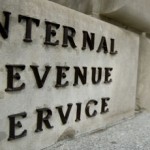“Killer B” anti-abuse regulations are on the way

Recognizing that taxpayers are exploiting the rules in ways it had not intended, the IRS on Friday announced that it will amend the existing regulations on cross-border reverse triangular reorganizations, popularly known as “Killer B” transactions (Notice 2014-32).
Killer B transactions are designed to allow corporations to repatriate foreign subsidiary earnings tax free by exploiting a loophole in Sec. 367. They do this by having a subsidiary purchase, in connection with a reorganization, stock of its parent corporation in exchange for property, and then exchange the parent company stock for the target corporation’s stock or property. The regulations issued in 2011 (T.D. 9526) that will be amended to apply to such transactions but only if the parent or the subsidiary (or both) is a foreign corporation.
The existing final regulations contain two priority rules, called the Sec. 367(a) and Sec. 367(b) priority rules. The priority rules act to exempt a triangular reorganization from the scope of the regulations. The Sec. 367(a) priority rule applies if:
- The parent and subsidiary are foreign corporations and neither is a controlled foreign corporation (under Regs. Sec. 1.367(b)-2(a)) immediately before or immediately after the triangular reorganization;
- The subsidiary is a domestic corporation, the parent’s stock in the subsidiary is not a Sec. 897(c) U.S. real property interest, and the parent would not be subject to U.S. tax on a dividend from the subsidiary under either Sec. 881 (e.g., because of a treaty) or Sec. 882 (no-U.S.-tax exception); or
- The parties engage in a certain type of Sec. 354 or 356 exchange (Regs. Sec. 1.367(b)-10(a)(2)).
The Sec. 367(b) priority rule provides that Sec. 367(a)(1) does not apply to a Sec. 354 or 356 exchange that occurs in connection with a triangular reorganization if the amount of gain that would otherwise be recognized under Sec. 367(a)(1) (without regard to any exceptions) is less than the amount of the Sec. 367(b) income recognized under Regs. Sec. 1.367(b)-10.
The final regulations also contain deemed distribution and contribution rules under Regs. Secs. 1.367(b)-10(b)(2) and 1.367(b)-10(c)(2).
The IRS is aware that taxpayers are exploiting these rules, and it is planning to amend the existing regulations as anti-abuse measures. Among the changes, it will remove the Regs. Secs. 1.367(b)-10(b)(2) and 1.367(b)-10(c)(2) deemed contribution rules and modify Regs. Sec. 1.367(b)-10(b)(4).
The Sec. 367(a) priority rule will be modified by adjusting the amount of income or gain that is considered Sec. 367(b) income. The new regulations will provide that Sec. 367(b) income includes a Sec. 301(c)(1) dividend or Sec. 301(c)(3) gain that would arise if Regs. Sec. 1.367(b)-10 applied to the triangular reorganization, only to the extent the dividend or gain would be subject to U.S. tax or would give rise to a Sec. 951(a)(1)(A) income inclusion that would be subject to U.S. tax.
In addition, the no-U.S.-tax exception will be modified to provide that the exception will not be available if the parent is a controlled foreign corporation.
The new regulations will apply to triangular reorganizations that are completed on or after April 25, 2014, the date of the notice, except for certain grandfathered reorganizations.
(By Sally P. Schreiber)
Source: JofA





























